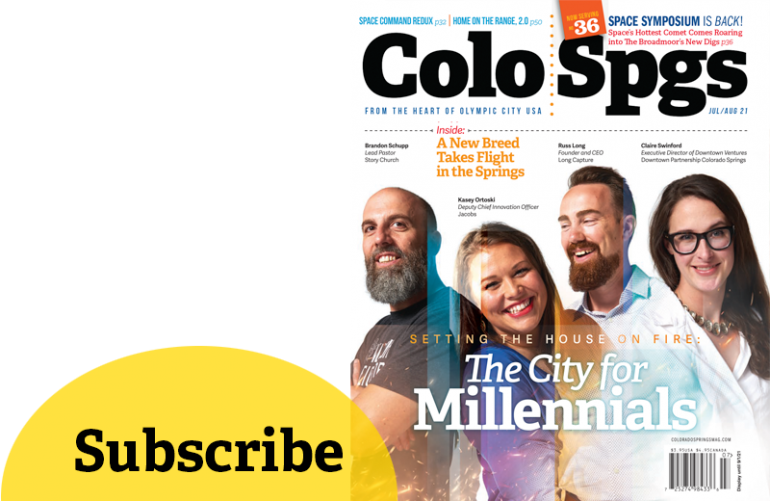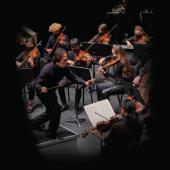COLLECTIVE VOICE
The plan was to gather a group of local musicians for a round-table discussion about the Colorado Springs music scene. But I quickly realized the plan was flawed. For starters, I had prepped for an interview with four people. When I showed up at the Black Sheep on a Monday evening, armed with my laptop and a dozen curated questions, the room was already bustling. Twelve musicians had shown up, and they were knee-deep in lively conversation before I entered the room. This was my first hint that I would not be directing the evening’s discussion.
The next hint came when we finally found our seats and I opened the interview with this question, which I thought was fairly straightforward: “How good is the music scene in Colorado Springs?”
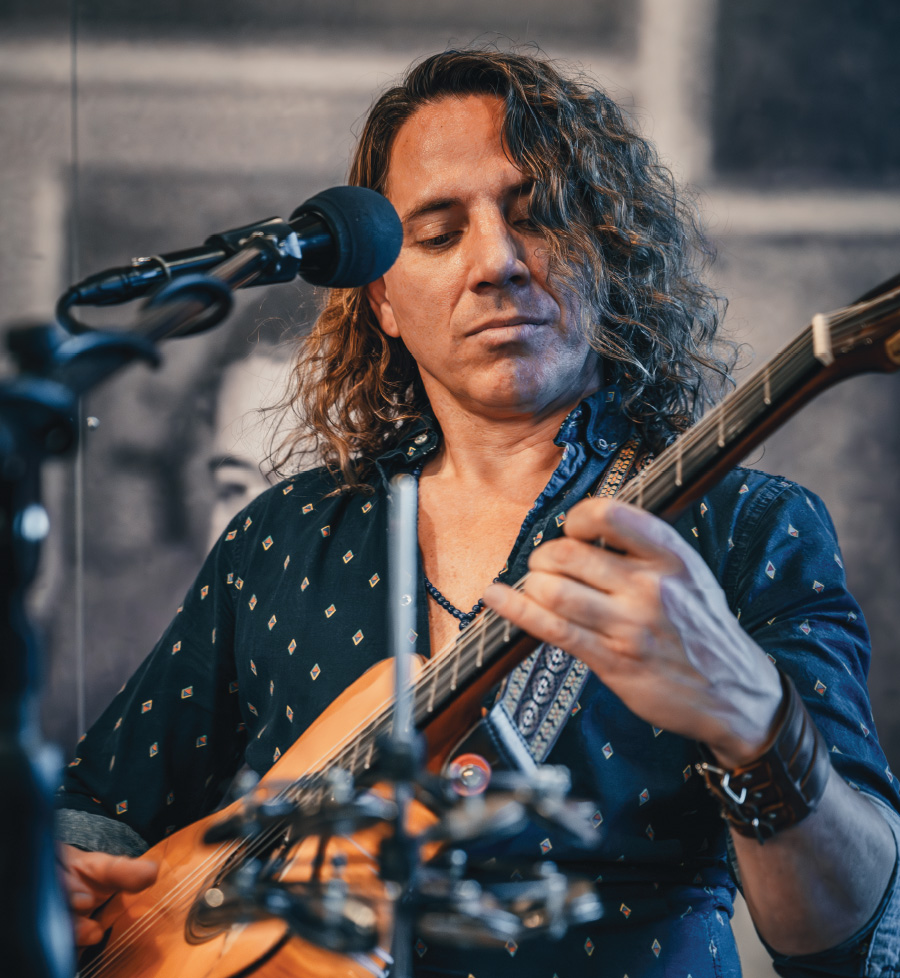
In a matter of seconds, a dozen questions fired back at me. What do you mean by “good?” The money? The crowd? The venue? How conducive the city is to a musician’s success?
I scrambled to clarify, but the group had already moved on, branching off in a dozen directions like dogs let out of kennels. It immediately became clear that these people had been waiting a long time to connect with each other, say their piece, gripe and commiserate, cast vision, and find a way forward. They had been waiting a long time to talk.
So we sat in a circle on the Black Sheep stage, car alarms blaring in the parking lot, the smell of pot drifting in from Platte, and we talked. And talked. Half an hour into the conversation, I closed my document of interview questions, sat back in my seat, and let the musicians direct the conversation as they damn well pleased.
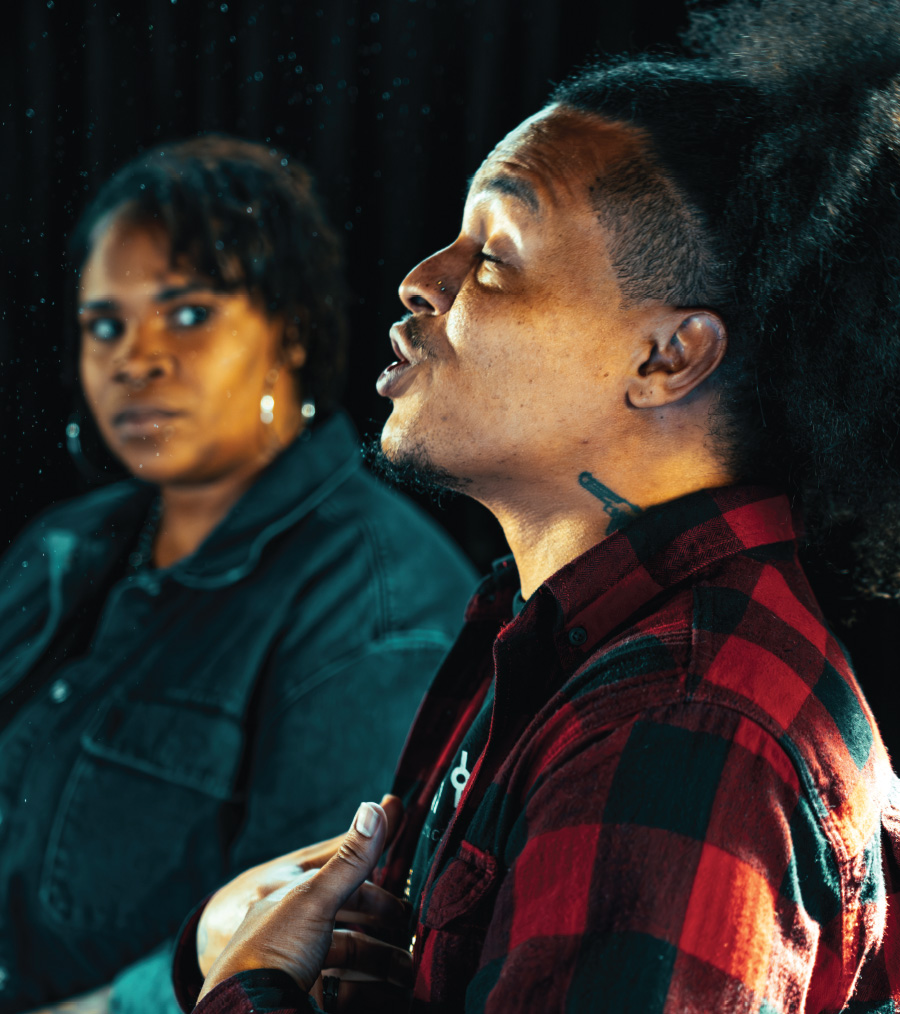
We talked about the benefits of working in Colorado Springs—a loyal fanbase, opportunities for small businesses, and the chance to make your mark in a place that isn’t oversaturated with competing voices. But several challenges also emerged. Colorado Springs has a woeful lack of small- to mid-range music venues, and there is no platform where people can discover upcoming shows and events from local talent. Also, the population can be resistant to unfamiliar voices.
“We need more marketing of the fact that this city is teeming with talent,” DJ ChloeBeeBlessed said, introducing one of the discussion’s more significant themes. “The average person wouldn’t necessarily know that. A lot of people are transplants, so when they come here, they want what they can get from home.”
As one of three locals in the room, E. De La agreed, “Being from here, one thing that I have seen is that people are not as receptive to new things. They don’t even know that they’re not ready for it.”
For this particular group, a diverse collection of musicians whose work blends genres and defies easy categorization, the reluctance to discover new sounds has been particularly challenging. Rafiel Slade shared his experience of moving here from North Carolina and experiencing culture shock. “It was a little tough at first, bringing what I bring. This ain’t that scene. They weren’t ready for that gospel-delic soul.” He paused and added, “But I’m gonna keep tryna give it to ‘em… If there’s gonna be growth, damn, I wanna be a part of it.”
“It really is a push and pull with the audience,” TerryJosiah, a performer and co-founder of Anthem Music Enterprises, said. “That’s what’s so beautiful about this city: once they’re there, they’re there. They’re not going anywhere. We’ve performed. And once the crowd was in our hands, they never left.”
“Necessity is the mother of invention,” Ryan Flores noted. “I had to start mixing all these pop genres into the flamenco, into the salsa, into the mambo to grab the people’s attention. And now I can draw a crowd, but it’s like, I had to do it in a really circuitous way because of the lack of support here for live music and just performance in general.”
These accommodations can be fairly extreme. When Ryan Flores talked about making his shows more engaging by playing drums with his feet while he strummed his guitar, I could imagine him strapped up like Burt from Mary Poppins, a bass drum on his back, a squeeze horn wedged under his armpit, doing everything in his power to make music feasible as a full-time job. It seemed a fitting metaphor for the gymnastics of every musician in that room.
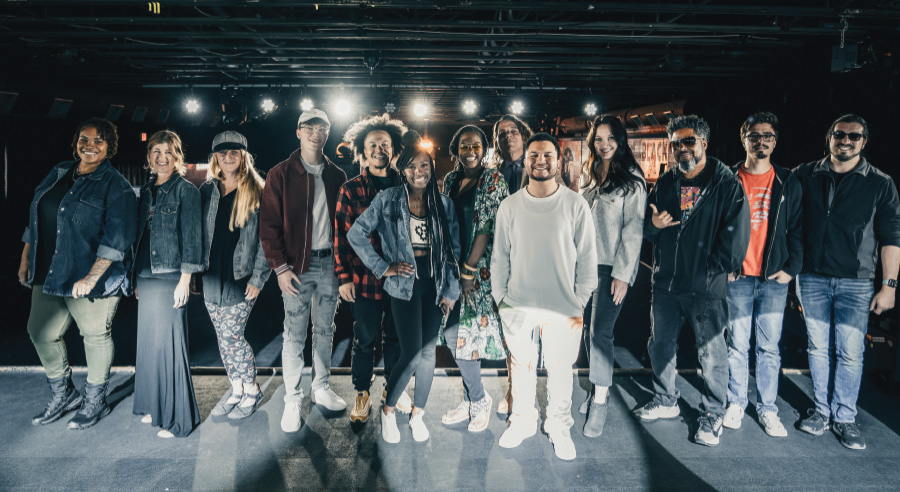
Every musician there was hustling to make things work. Jayma Superlove described the business of music, expressing how demanding the administrative side of the job is. “By the time I’m ready to perform, I’m exhausted,” she said.
Worse, when musicians are ready to perform, there is not always a suitable venue. Local mainstays like The Black Sheep have good management and can draw a crowd, and several new venues are planned for the coming years. Even so, up-and-coming musicians need a variety of performance venues, both small and large, to be able to scale their growth.
“Every city I’ve been to has a pyramid of sizes,” Merch noted. “Denver has that pyramid. Colorado Springs does not.”
So why perform in the Springs? I began to wonder. Of the 12 musicians in the room, only three were locals. The rest had moved here from other cities—some as large as L.A. I wanted to know: “With all the challenges of working in this city, what are the signs of hope you’re clinging to?”
“This!” Ryan Flores said, and the group hummed with assent. The room broke into joyful chaos for a moment, everyone talking over each other, voices eager and hopeful despite every setback they had described. These musicians had come here to share, and in each other’s company, they seemed to find a reason to hope.
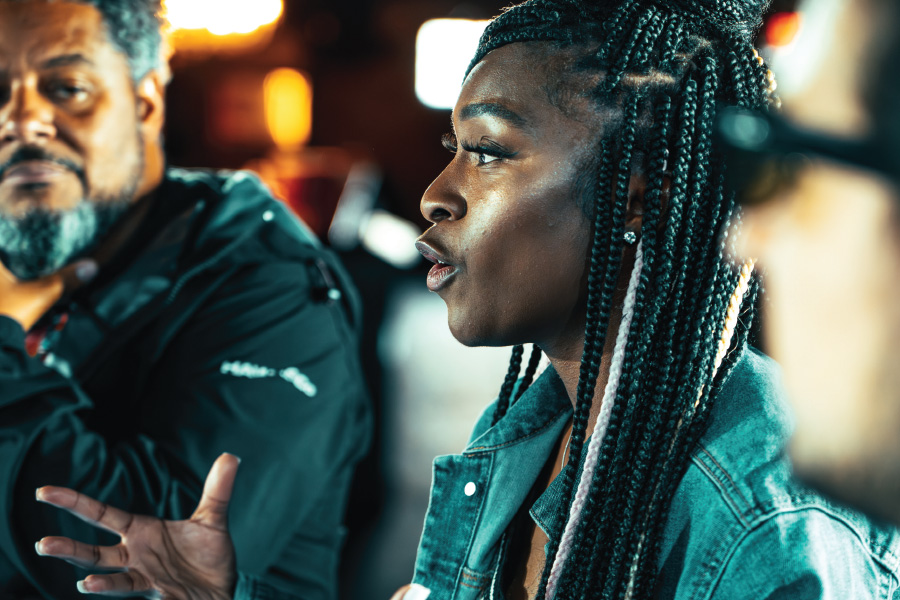
“It’s one collective voice,” TerryJosiah said. “And anytime you have that collective voice, and you have the city that gets behind it, that’s when you get Austin. That’s when you get an Atlanta. That’s when you get a New York back in the seventies and eighties when rap started, and the city got behind it. If we can actually build that, it’s beautiful. And the hope is that we are!”
“We all moved here for one reason or another,” Wendy Byrd said. “But we all stayed. We love this city. We want to see it succeed.”

